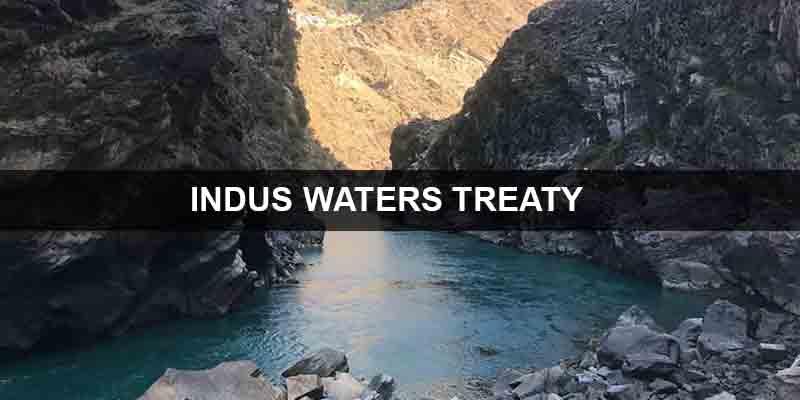- India
- May 16
Indus Waters Treaty on hold till Pak stops supporting terror, says Jaishankar
• The Indus Waters Treaty will continue to be held in abeyance until Pakistan “credibly and irrevocably” stops its support for cross-border terrorism, Minister of External Affairs S. Jaishankar said on the sidelines of an event in New Delhi on May 15.
• A day after the April 22 Pahalgam attack, India announced a raft of punitive measures against Pakistan including suspension of the Indus Waters Treaty.
• Reportedly, Pakistan has signalled its willingness to discuss New Delhi’s long-standing concerns about the treaty.
Indus Waters Treaty
• India and Pakistan share the waters of six rivers — Ravi, Beas, Sutlej, Indus, Chenab and Jhelum. The basin is mainly shared by India and Pakistan with a small share for China and Afghanistan.
• The Indus Waters Treaty was signed in September 1960 after nine years of negotiations between India and Pakistan with the help of the World Bank, which is also a signatory.
• Under the Treaty, the water from the three eastern rivers — Ravi, Sutlej and Beas — averaging around 33 million acre feet (MAF) were allocated to India for exclusive use.
• The water from western rivers — Indus, Jhelum and Chenab — averaging to around 135 MAF were allocated to Pakistan except for specified domestic, non-consumptive and agricultural use permitted to India as provided in the Treaty.
• The Treaty also sets forth distinct procedures to handle issues which may arise: “questions” are handled by the Commission, “differences” are to be resolved by a neutral expert, and “disputes” are to be referred to a seven-member arbitral tribunal called the “Court of Arbitration.”
• As a signatory to the Treaty, the World Bank’s role is limited and procedural.
• The Treaty sets out a mechanism for cooperation and information exchange between the two countries regarding their use of the rivers, known as the Permanent Indus Commission (PIC), which has a commissioner from each country.
• The two commissioners are required to meet at least once every year, alternately in India and Pakistan.
• The commission enables to establish and promote cooperative arrangements for the treaty implementation, furnish or exchange of information or data provided for in the treaty, promote cooperation between the parties in the development of the waters of the Indus system.
Can India walk out of the pact unilaterally?
• The Indus Waters Treaty does not allow either country to unilaterally withdraw from the agreement.
• According to Article XII of the treaty, it states that the provisions of the treaty, or any modifications made under paragraph (3), remain in force until terminated by a mutually ratified treaty between both governments.
• If India wishes to terminate the treaty, it must adhere to the guidelines of the 1969 Vienna Convention on the Law of Treaties.
Manorama Yearbook app is now available on Google Play Store and iOS App Store

